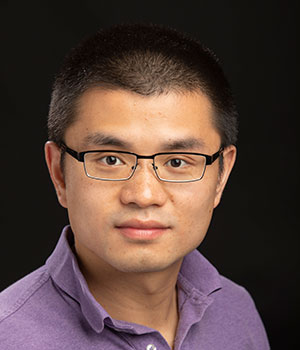
- li342@uwm.edu
- Enderis Hall 789
Xu Li, PhD
- Assistant Professor, Educational Psychology
Xu Li is an assistant professor in Counseling Psychology at the Department of Educational Psychology in University of Wisconsin-Milwaukee. Xu Li earned his BS in Mathematical Sciences and his MEd in Clinical and Counseling Psychology at Beijing Normal University in China. He then moved to the U.S. and obtained his PhD degree in Counseling Psychology at the University of Maryland, College Park. He completed his doctoral internship at the University of Maryland Counseling Center as well.
Research Interests
Broadly speaking, my interests reside in two general lines of research: (1) the process, outcome, and training in individual and group psychotherapy, and (2) the career development as well as mental health of college students or early career employees. In the first line of research, I focus on investigating important clinical constructs in therapy process (e.g., group cohesion, therapist metacommunication, therapist-client dynamics, etc.) or therapist training (e.g., therapist knowledge structure, etc.). I am particularly interested in exploring therapist-related factors in psychotherapy process-outcome research that can have important implications for effective therapy training and practice. In the second line of research, my interests include investigating individuals’ career development in both U.S. and Chinese cultural contexts, including (a) important predictors of career outcomes, such as social comparison, personality traits, familial environments, and systemic factors of race- and gender-related barriers, and (b) the development, revision, and validation of commonly used career measures. In addition, I am also interested in college students’ mental health and what predicts a more successful and healthy college life, such as social media use, perceived stress, coping, parental support, etc.
Three overarching themes characterize my research interests. Firmly embracing the scientist-practitioner model, the first overarching theme is the focus on integrating research and clinical practice. Many of my research questions directly came from the clinical practice or training (e.g., Li, Jauquet, & Kivlighan, 2016), and findings from many studies (e.g., Li, et al., 2018) may have direct implications for clinical practice. The second overarching theme is my efforts in employing advanced quantitative methods and statistical techniques in counseling psychology research. Given my background with a bachelor’s degree in mathematics, I have always been curious and enthusiastic about the innovative application of quantitative analytical approaches in counseling psychology research. While I believe theories and research questions inform the selection of appropriate analytical methods, I also believe the use of advanced and innovative analytical methods can help inspire new and meaningful research ideas and broaden the scopes of our research questions beyond what traditional methods can address. Last but not least, the third crucial overarching theme across my research is the focus on cross-cultural and multicultural factors in psychotherapy process and in individual’s career development and mental health. I strive to understand factors that make therapy effective in cross-cultural and multicultural contexts, and how therapists can improve their multicultural and cross-cultural competence. Furthermore, I also explore and unveil the unique mental health and career development challenges of individuals with marginalized identities, which hopefully can offer empirical evidence to advocate for the marginalized population.